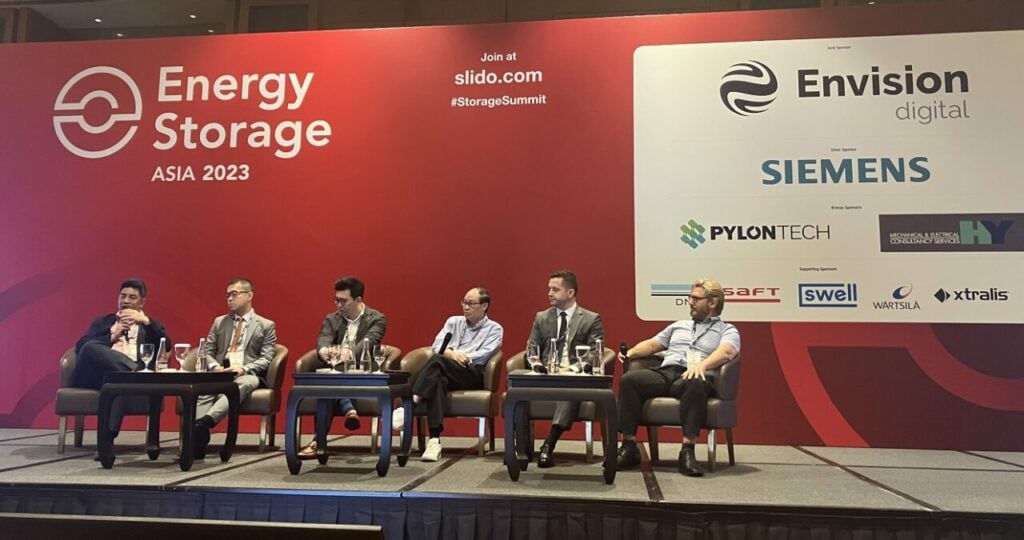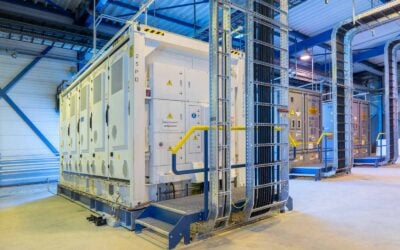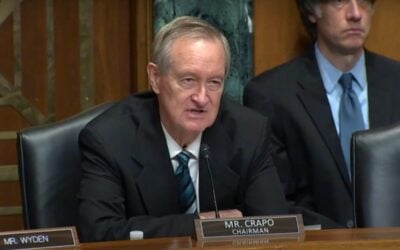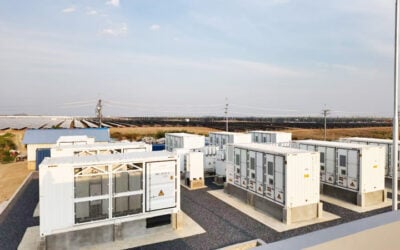
Many countries in the ASEAN region are advancing their adoption of renewable energy with the support of regulators, but the same can’t yet be said for energy storage technologies.
That was a view expressed by Beni Suryadi of the ASEAN Centre for Energy, speaking this morning on the first day of the Energy Storage Summit Asia 2023, hosted in Singapore by our publisher Solar Media.
Enjoy 12 months of exclusive analysis
- Regular insight and analysis of the industry’s biggest developments
- In-depth interviews with the industry’s leading figures
- Annual digital subscription to the PV Tech Power journal
- Discounts on Solar Media’s portfolio of events, in-person and virtual
While the focus on renewable energy is growing, the region’s energy transition is “lagging” when it comes to a corresponding focus on energy storage, fellow speaker Nicholas Marquier, of the International Finance Corporation (IFC) said.
Speaking generally about the 10 countries in the region, Suryadi, manager of power, fossil fuel, alternative energy and energy storage at the intergovernmental organisation which represents their interests, said there is a “lack of involvement in discussion” by regulators.
That lack of involvement is the biggest challenge facing the adoption of energy storage today, because regulators in ASEAN aren’t yet arming themselves with technical knowledge on the benefits of batteries and other storage technologies.
Beni Suryadi referred to the way that Vietnam moved rapidly to deploy several gigawatts of solar PV from 2020 to 2022 is a well-known “legend” of the renewable energy industry. Conversely, industry observers need to “work hard” to find any substantive developments in the country relating to energy storage, he said.
Marquier of the IFC noted that ASEAN countries’ governments recognise that the climate agenda is important, and renewable energy is a critical and key part of that. Yet “there are not so many regulators” looking at storage as part of the solution. There are incentive programmes and support schemes for renewable energy, but not for battery energy storage systems (BESS) and other storage tech.
Suryadi added that incentives are created to enable growth of renewable energy when policies and deployment targets are put in place for solar PV, wind and other clean energy resources.
This hasn’t yet happened for energy storage because in many cases policymakers and regulators aren’t aware of the benefits energy storage can offer, which include helping to lower the cost of running energy systems. Without that awareness, incentives for storage are seen as a cost burden.
This is starting to change, and awareness is growing, but it will take time. Suryadi named the example of Thailand, which recognised some time ago that energy storage could benefit its energy transition and bolster energy security, access and reliability, but creating the right regulations and support to enable that is still a “massive challenge,” the expert said.
‘Pain points for the grid’
Later in the morning’s sessions, panelists including technology providers and system integrators, financiers and experts discussed the role of energy storage in the power system. The conversation included a focus on financing structures and business models for storage in the Asia-Pacific (APAC) region.
Revenue models for energy storage around the world are varied, from contracted revenues for flexible capacity or grid services, to merchant revenues from market participation.
George Garabandic, principal consultant and energy storage lead for the APAC region with DNV, said that where energy storage can help grid operators solve their biggest “pain points” will be where stable revenue structures will be found.
Critical services to solve those pain points “will become contracted services,” Garabandic said, and in particular people should think about understanding which services are most critical among them, that present challenges participation through spot markets cannot be relied upon to deliver the reliability the grid needs.
“Playing into pain points of the grid will be essential,” Garabandic said.
The DNV expert cited the example of energy storage to absorb shocks to the network of short circuited currents, and to provide inertia. The latter, typically delivered as a byproduct of running thermal generation in the traditional model – which is clearly less available as thermal plants are overtaken by variable renewable energy (VRE) in terms of capacity growth – is likely the more dominant and pressing priority, Garabandic said.
Nicolas Leong, energy business director for North and Southeast Asia with technology provider and system integrator Wärtsilä, said that in the past, the running of power grids was always talked about in terms of energy capacity. Today, Leong said, the conversation is about how flexible a grid can be in balancing different sources of energy against different demand profiles. Storage is a key technology, among others including demand side response, for adding that flexibility.
The 1st Energy Storage Summit Asia, continues on 12 July 2023 in Singapore. Hosted by Energy-Storage.news publisher Solar Media, the event will help give clarity on this nascent, yet quickly growing market, bringing together a community of credible independent generators, policymakers, banks, funds, off-takers and technology providers. For more information, go to the website.






